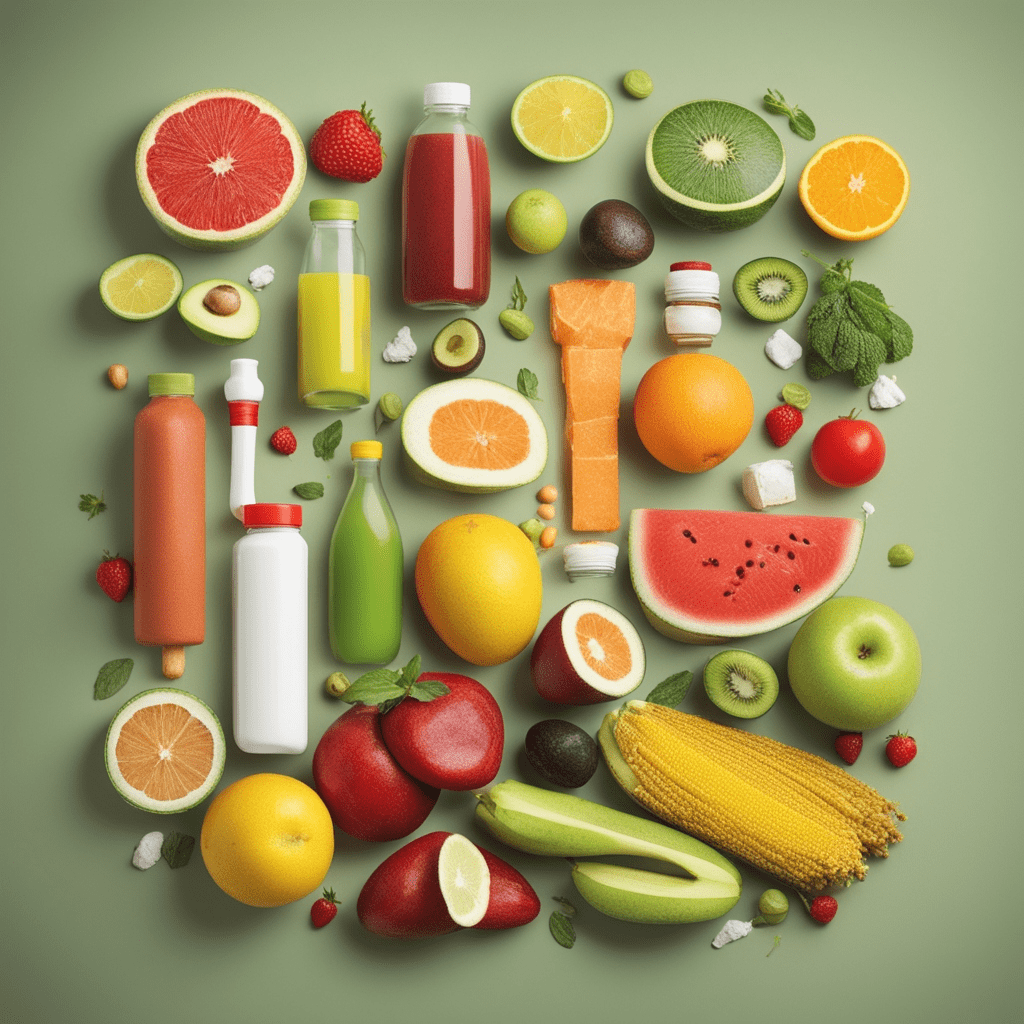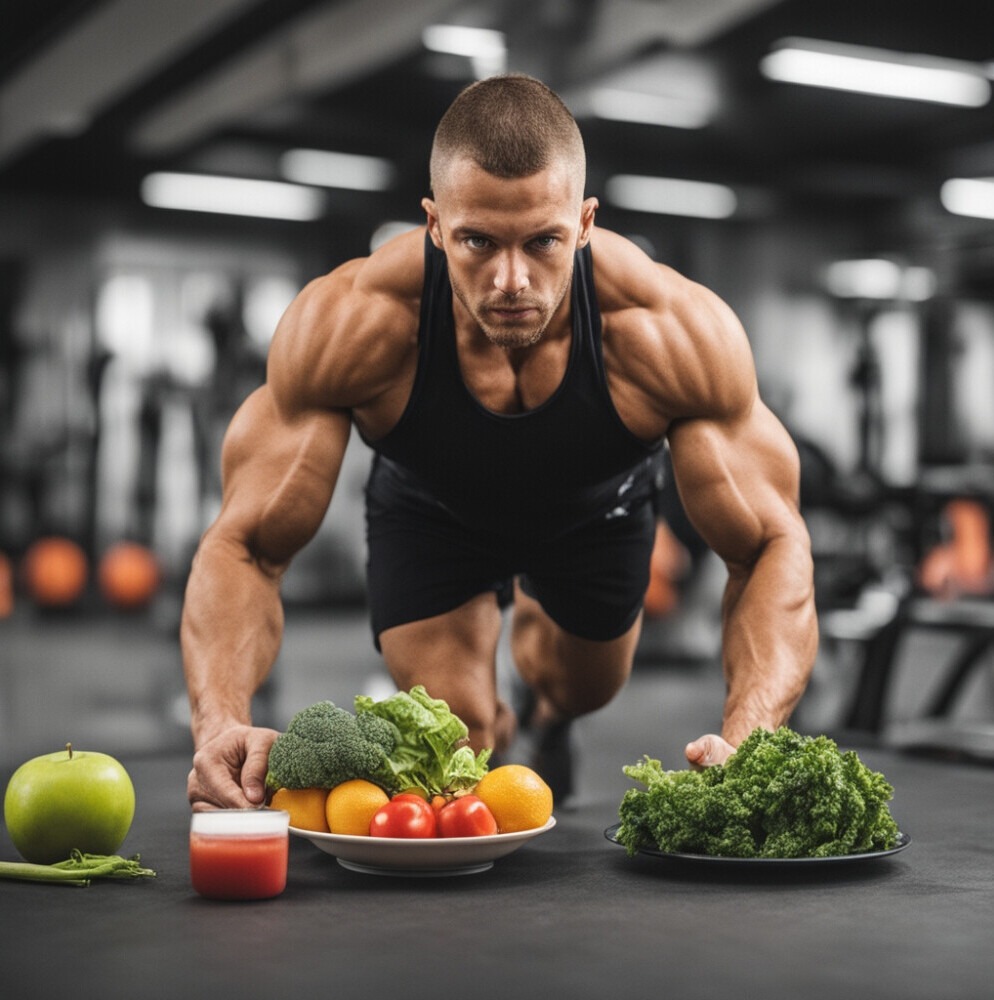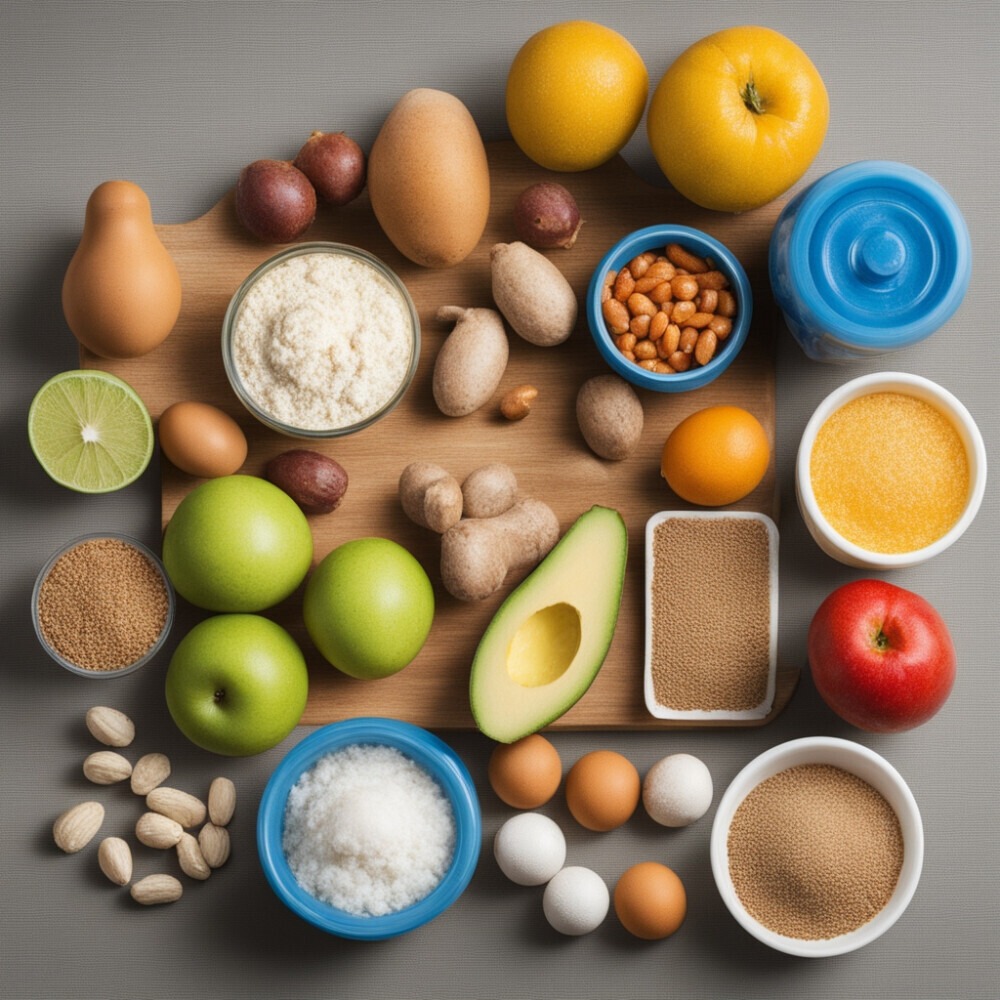
The role of nutrition in maximising training results
The role of nutrition in maximising training results is one that should not be overlooked. What we eat and how our body responds to what we’ve eaten is vital to how we perform. This post will be taking an in depth look at the connection between these vital elements.
The Role Of Nutrition In Maximising Training Results
Nutrition and training go hand in hand. Without a solid understanding of what you put into your body, putting in those hours at the gym or on the track might not yield the results you’re aiming for. It’s time to break down the basics to help you get the most out of your workouts.
Understanding Macronutrients and Their Impact
First off, let’s talk macronutrients. These are your carbohydrates, proteins, and fats. Carbs are your body’s main energy source, especially for those high-intensity workouts. Think of them as the fuel that keeps your engine running. Proteins are the building blocks of muscle.
After a tough session, your muscles need protein to repair and grow stronger. And fats, often misunderstood, are essential for hormone production and overall health – just make sure you’re going for the healthy kinds like avocados, nuts, and olive oil.
The Role Of Nutrition In Maximising Training Results
The Importance of Micronutrients in Training
Micronutrients, while needed in smaller amounts, are no less important. Vitamins and minerals play crucial roles in energy production, immune function, and bone health, among other things. A balanced diet rich in fruits, vegetables, lean meats, and whole grains usually covers most of these needs.
But keep an eye on your intake, especially if you have specific dietary restrictions or preferences. For instance, endurance athletes may need to pay special attention to iron and vitamin B12 to maintain energy levels and avoid fatigue.

The Role Of Nutrition In Maximising Training Results
The Vital Role of Hydration
Now, we can’t forget about hydration. Water is vital for everything your body does, including regulating temperature, maintaining joint health, and transporting nutrients.
Dehydration can seriously hinder your performance and recovery, so make sure you’re drinking enough throughout the day – not just during your workout. Electrolytes also play a significant role, especially in prolonged or intense workouts where sweat losses are high.
Be mindful of electrolyte balance to avoid cramps and optimize performance.
Caloric Intake and Energy Balance for Training Success
Finally, understanding your caloric intake and energy balance is key. You need to consume enough calories to fuel your workouts and daily activities, but not so much that it leads to unwanted weight gain.
It’s all about finding that sweet spot where your body has enough energy to push through training sessions and recover properly without excess. Keep an eye on your energy levels, and adjust your intake if you notice you’re feeling sluggish or not performing well. As you can see, the role of nutrition in maximising training results is an important one.
Pre-Workout Nutrition – Fuelling for Success
Fuelling up before a workout can make all the difference in your performance and results. What you eat before you start sweating can provide the energy needed to maximize efforts and delay fatigue. Here’s a simple guide to getting your pre-workout nutrition on point.
Choosing the right foods at the right time is key. Ideally, a pre-workout meal should be consumed 2-3 hours before you hit the gym. This gives your body ample time to digest and absorb nutrients. You’re looking for a balanced meal with carbs, proteins, and fats.
If, you’re in a hurry and only have about an hour before a workout, opt for a smaller snack that’s easy to digest. Bananas, yogurt, or a slice of whole-grain toast with a bit of peanut butter are great options.
Carbohydrates should be the star of your pre-workout meal. They provide the quick energy needed for high-intensity exercises. Think of foods like oatmeal, sweet potatoes, or whole grain bread. These will help keep your energy levels stable and provide the fuel your muscles need.
Protein consumption before exercise can also benefit you. It helps to increase muscle protein synthesis and prevent muscle breakdown. Lean sources like chicken breast, turkey, or a protein shake can be quite effective. Combining a bit of protein with your carbs can give you a bit of an edge.
Hydration is just as important before working out. Aim to drink about 17-20 ounces of water 2-3 hours before exercising, and another 8 ounces about 20-30 minutes prior. Being well-hydrated can help with temperature regulation, nutrient transportation, and muscle function, ensuring you perform at your peak.
Post-Workout Nutrition – Recovery and Growth
What you eat after a workout is just as critical as what you consume before. Post-workout nutrition focuses on recovery and muscle growth. Your body is like a sponge after the workout, absorbing nutrients more efficiently, so this is the time to refuel and repair.
First up, prioritize protein. After you’ve pushed your muscles to the limit, they need protein to kick-start the repair process and promote growth. Aim to consume about 20-30 grams of high-quality protein within an hour of finishing your workout. This could be a protein shake, some lean meat, or dairy products like Greek yogurt or cottage cheese.
Carbohydrates post-workout are necessary to replenish glycogen stores depleted during exercise. A good rule of thumb is to combine your protein with some carbs. Think along the lines of a chicken breast with a side of brown rice, or a smoothie with both protein powder and fruit. This combination helps to maximize recovery and ensures your muscles are ready for the next session.
Hydration post-exercise is another critical aspect. You lose a lot of fluids through sweat, so rehydrating is essential. Water is excellent, but after intense or prolonged periods of exercise, you might also consider a drink with electrolytes. This helps to replace sodium, potassium, and other minerals lost during your workout.
Timing can make a big difference too. The window for optimal nutrient absorption is typically within 30-45 minutes after you finish exercising. Eating within this timeframe can enhance muscle recovery and glycogen replenishment. Plan ahead so you have a snack or meal ready to go as soon as you wrap up your workout session.

Long-Term Nutritional Strategies for Maximising Training Results
Achieving training goals isn’t just about short-term gains; it’s about maintaining progress over the long haul. A balanced diet that supports continuous training is crucial. Include a variety of nutrient-dense foods to cover all bases.
Think colourful fruits and vegetables, lean proteins, whole grains, and healthy fats. This variety ensures you’re getting a broad spectrum of nutrients necessary for sustained health and performance.
Supplements can play a role too, but they’re not a substitute for a healthy diet. Protein powders, multivitamins, and specific supplements like creatine can help when dietary sources aren’t enough. Always consider quality and talk to a nutritionist or healthcare provider before adding any supplements to your routine.
Tailoring Nutrition for Different Training Goals
Different types of training might require slight nutritional adjustments. Endurance athletes often need more carbohydrates, while those focusing on strength training may require higher protein intake. Pay attention to your body and tweak your diet as needed. Listen to how you feel and perform; sometimes small changes can make a meaningful impact.
Monitoring and Adjusting Your Nutrition Plan
Lastly, continually monitor and adjust your nutritional intake based on your progress. Keep track of your performance, energy levels, and even how you feel mentally and physically. This approach allows you to make informed decisions and fine-tune your nutrition strategy to stay on track with your long-term goals.
The Role Of Nutrition In Maximising Training Results cannot be overstated. Whether you’re aiming to build muscle, increase endurance, or simply maintain overall fitness, what you eat plays a pivotal role. By understanding how different nutrients impact your performance and recovery.
You can optimize your diet to support your training and achieve your fitness goals. Remember, nutrition is a powerful tool that, when used correctly, can help you maximize your training results and maintain peak performance for years to come.
The Importance of Meal Timing and Frequency
Meal timing and frequency are additional factors that can influence the role of nutrition in maximising training results. When and how often you eat can impact your energy levels, recovery, and overall performance. While some athletes thrive on three square meals a day, others find that eating smaller, more frequent meals helps keep their energy levels stable and prevents overeating.
Pre- and Post-Workout Nutrition have already been discussed, but the meals you consume throughout the day are equally important. Aim to space out your meals every 3-4 hours to ensure a steady supply of nutrients. This approach can help maintain blood sugar levels, prevent hunger pangs, and provide a continuous supply of protein to support muscle repair and growth.
Customizing Your Nutrition Plan for Individual Needs
Every individual is unique, and so are their nutritional needs. Factors such as age, gender, body composition, metabolism, and specific fitness goals all play a role in determining the best diet plan for you. For instance, older adults may require more protein to prevent muscle loss, while younger athletes might need higher carbohydrate intake to support high-intensity training.
Women, particularly, might have different nutritional requirements than men, especially concerning iron and calcium intake, which are crucial for preventing anaemia and maintaining bone health. Additionally, individuals with specific dietary restrictions, like vegetarians or those with food allergies, must plan carefully to ensure they are getting all the essential nutrients.
It doesn’t matter about gender, the role of nutrition in maximising training results is one in the same. The only difference lies in the quantity and quality of the food you consume. Consulting with a sports nutritionist can be highly beneficial for creating a personalized nutrition plan that aligns with your training and lifestyle. They can provide tailored advice, track your progress, and adjust your diet based on how your body responds.
The Role Of Nutrition In Maximising Training Results
Psychological Benefits of Proper Nutrition
Beyond the physical advantages, proper nutrition also has a significant psychological impact. Eating a balanced diet can enhance mood, reduce stress, and improve cognitive function.
When you’re well-nourished, you’re more likely to feel energetic, focused, and motivated to train. Conversely, poor nutrition can lead to fatigue, irritability, and lack of concentration, all of which can negatively affect your performance and motivation.
A consistent, balanced diet supports mental well-being by stabilizing blood sugar levels and providing essential nutrients that aid in the production of mood-regulating hormones.
For instance, omega-3 fatty acids, found in fish and flaxseeds, have been linked to improved mood and cognitive function, while complex carbohydrates help sustain energy levels and prevent mood swings.
The Role of Nutrition in Injury Prevention and Recovery
Nutrition is also crucial in preventing injuries and speeding up recovery if injuries occur. A diet rich in anti-inflammatory foods, like leafy greens, berries, and nuts, can help reduce inflammation and promote faster healing. Omega-3 fatty acids, in particular, are known for their anti-inflammatory properties and can aid in recovery from intense training or injury.
Furthermore, adequate intake of calcium and vitamin D is essential for bone health, reducing the risk of fractures and stress injuries. Collagen, found in bone broth and certain supplements, can also support joint health and flexibility, crucial for athletes involved in high-impact sports.
Post-injury, nutrition plays a key role in the recovery process. Increased protein intake is essential for repairing damaged tissues, while certain micronutrients like zinc and vitamin C can support immune function and tissue repair. Staying hydrated and consuming a balanced diet ensures that the body has all the necessary tools to recover efficiently and return to training.

Practical Tips for Implementing a Nutritional Plan
Implementing a nutritional plan that maximizes training results can seem overwhelming, but breaking it down into manageable steps can make it easier:
- Plan Ahead: Preparing meals and snacks in advance ensures you have healthy options available and can help prevent impulse eating of less nutritious foods.
- Track Your Intake: Keeping a food journal or using a nutrition app can help you stay accountable and ensure you’re meeting your nutritional needs. It can also highlight areas for improvement, such as inadequate protein intake or excessive sugar consumption.
- Listen to Your Body: Pay attention to how different foods make you feel and perform. If, a particular diet isn’t working for you, don’t be afraid to make adjustments. Nutrition should support your training, not hinder it.
- Stay Hydrated: Regularly monitor your hydration levels, especially during hot weather or intense training. Consider electrolyte supplements if necessary.
- Seek Professional Guidance: If, you’re unsure about how to structure your diet, consider consulting with a sports nutritionist or dietitian. They can provide valuable insights and help tailor a plan to your specific needs.
- Be Flexible: While it’s essential to have a nutrition plan, it’s also crucial to be flexible. Life happens, and sometimes you might not have access to your ideal meal. Learning to make the best choices available in any situation is a valuable skill.
My Conclusion To The Role Of Nutrition In Maximising Training Results
In summary, the role of nutrition in maximising training results is comprehensive and multifaceted, involving not just what you eat. But when and how you eat. By understanding and applying principles of balanced nutrition tailored to your specific training goals.
You can significantly enhance your performance, recovery, and overall well-being. Remember that nutrition is an ongoing journey of learning and adaptation, and the key is to find what works best for you and your unique needs. Stay informed, stay flexible, and most importantly, enjoy the process of nourishing your body to achieve your training objectives.
Achieve your dreams and goals. If, you have any questions or comments regarding your sporting goals. Please leave them below.
Your nutrition and sport. U.T.G.





